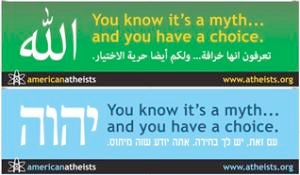I’ll say one thing for Rush Limbaugh: he just cracked the sewer valve wide open, but he’s not the only one contributing to the gusher of sewage. Take Bryan Fischer: he’s even worse than that slick pig Limbaugh. He thinks there’s nothing wrong with what Limbaugh said, and acknowledges, like Limbaugh, that the only thing he did wrong was use the “slut” word, which is naughty…but that his sentiment was entirely correct.
Here’s his interpretation of Sandra Fluke’s testimony. He is shocked that:
…this woman could, without any trace of shame, any trace of embarrassment, give open testimony before the entire United States of America, about how much promiscuous sex she and her classmates are having.
Of course, that’s not what she testified. She testified that women’s reproductive health could be expensive, citing the use of contraceptives for prevention of ovarian cysts. But she could have talked about the importance of contraception for a healthy, happy sex life even within a monogamous relationship: it does not make a woman a slut for enjoying sex with her partner. But even if she did have multiple partners, so what? There’s no shame in enjoying sex: every human does, unless they’re wracked with religious guilt.
It really exposes these people for what they are: anti-sex, anti-human prudes. Fuck the Puritans. Please.
And here’s another idiotic perspective on Fluke from Scott Adams, Dilbonian dimbulb. He sees two possible interpretations.
Which of these two events do you find more distasteful?
1. Rush Limbaugh called Sandra Fluke a slut for her position on contraceptives.
Or
2. Activists are treating Fluke as a helpless victim who needs society’s protection against the harsh words of an entertainer.
My interpretation of events is that Limbaugh saw Fluke as a capable adult, and a public figure, tough enough to handle some harsh language. The boycotters apparently see Fluke as more of an endangered child, or a helpless damsel in distress, threatened by a monster. Light the torches and launch the boycott!
Adams has always been this clueless. I don’t know of a single person who has responded to this by thinking that Fluke needs our protective embrace: she seems confident and mature. The reaction has been anti-Limbaugh. He has been exposed as a blue-nosed asshole who despises women in general — not specifically Sandra Fluke — who have a healthy attitude towards sex, who treat it as a reasonable and expected and even joyful aspect of normal behavior, rather than something to hide in shame.
That’s the battle. Not some peculiar chauvinistic idea that one poor woman needs our chivalrous shelter. I suspect Adams is just projecting.
Another person who is projecting is Bill Maher.
Hate to defend #RushLimbaugh but he apologized, liberals looking bad not accepting. Also hate intimidation by sponsor pullout
He did not apologize for despising women who enjoy sex or need medical assistance in maintaining their reproductive health; clearly, he still feels that’s a valid stance. He only apologized for using words like “slut” instead of being more formal and calling her a harlot or something similarly antiquated. Jon Stewart got this right: what’s wrong with Maher that he can’t see this?
As someone who also says things on behalf of a minority that a majority finds offensive, I sympathize with the detestation of “intimidation by sponsor pullout” — but the problem lies in the reliance on money to fund free speech, and coupling that to selling soap. What Limbaugh said is still wrong and stupid.


